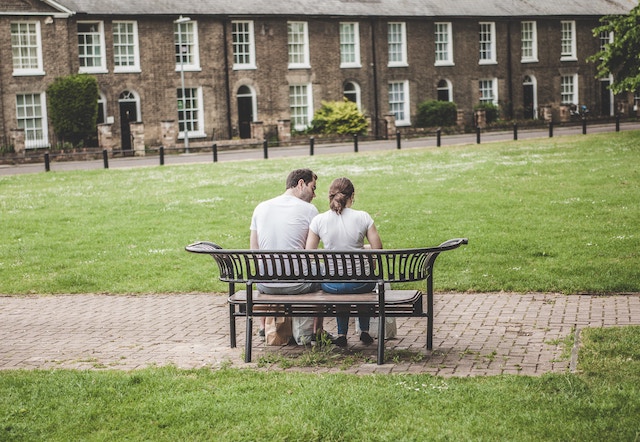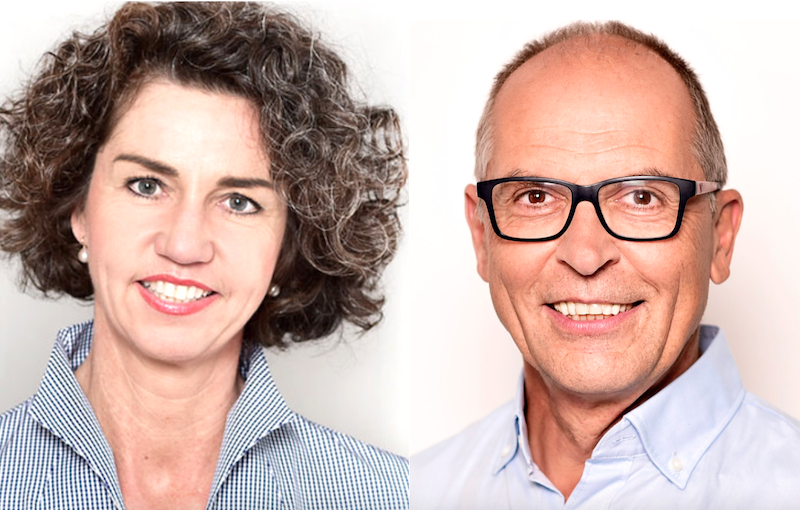Photo by Martin Brosy on Unsplash
Mediation in the field of health and illness
Mediation in the area of conflict between patients, relatives, helpers and institutions
Co-authorship: Dr Heinz Pilartz and Dr Sascha Weigel
Illness, especially chronic illness, is unfortunate enough in itself, but when conflicts flare up on top of that, the limits of what is bearable for those involved are quickly reached. Mediation, a communication process for dealing with conflicts, can do nothing against the illness itself! Instead, good doctors and medication are needed to combat the illness. What does mediation have to do with illness and health?
But anyone who works in healthcare institutions and fights diseases and cares for those affected and works with those involved or is directly or indirectly burdened with a serious chronic illness themselves will immediately think of the small and large potential for conflict that are accompanied by an illness – or better yet, come along and demand attention!
In the following we give a Overview of the various conflict potentials and application potentials of mediation in the field of illness and health. They are all based on practical experience, direct and indirect, which we have gained both as doctors and as lawyers and which we incorporate into our work as mediators.
The starting point and aim of mediation in the event of illness is to focus on the potential for conflict and to channel the available energies into individual recovery and the social network of relationships. Because both are interdependent.

Photo by Clem Onojeghuo on Unsplash
1. illness is a highly personal matter – with highly public effects
Illness is highly personal and private, At the same time, illness has a public impact.
It is true that only those directly affected suffer from the disease: they are the patients, they endure the pain, are administered the medication and have to live with the biochemical consequences, especially the side effects. And yet this suffering and endurance also affects those around them – and not just the doctors and carers, but also family members, friends, work colleagues and superiors. They worry, sympathise, plan, want to help and support – and yet can only stand by. But still. Illness overturns plans, destroys wishes, hopes and aspirations, awakens new ones and challenges the entire social network, families, friends and companies.
Seen from a distance, it becomes clear that different needs arise from the different positions and want to be satisfied. As a result of an emerging, permanent or even chronic illness, nothing remains as it was before. And the social tensions, potential for conflict and existing agreements and compromises that already existed must be renewed and placed on a new footing. Contradictions come to light again, things that have been resolved fall back into place and appear unclear again, and seeing the situation as an opportunity – is hardly possible at first.
What is needed is a forum for dialogue that addresses this complex social situation in the face of the individual illness and provides space for the potential for conflict and the need for clarification. Mediation appears to be the method of choice here.
2. illness changes habits
Serious, long-term illnesses pull the rug out from under established role models. Within the family, but also within the company and at work, various vacuums occur. Roles are no longer filled and have to be reassigned, responsibilities and privileges have to be redistributed. Fairness becomes a huge topic of discussion and an opportunity for existing potential conflicts to escalate.
3. dealing with healthcare and disease progression is an interpersonal powder keg
Illness always has a social history. It may break into a person's life subjectively, but it becomes an opportunity to reorganise the past. Responsibility and guilt are usually already on the doorstep as soon as the sick person has to stay in bed.
Of course, there are nuances here. The different ways of dealing with illnesses may sometimes make for jokes and laughter ("men's colds"), but it doesn't stay funny for long and certainly not always when it becomes chronic or actually life-threatening.
And it is still the case that men generally go to the doctor rarely and far too late. Prevention is not yet an area that can count on male presence. Nutrition and exercise are similarly underexposed, even though a lot has happened here in recent years. Nevertheless, the resulting potential for conflict only emerges on the social communication map when the disease appears as a consequence. Then escalations are not uncommon and the conflicts disrupt social interaction and individual recovery.
4. diseases provoke victim behaviour
People who fall seriously, chronically and then suddenly ill often feel victimised. Chronic, fatal and sudden illness is difficult to accept. Highly emotional sufferers are inclined to establish victim behaviour, partly because so many rescue efforts and also supposed persecutor information appear. Today we are all psychologically informed and often esoterically seduced. How often are the sick treated as the guilty party? Fat people become lazy and illness becomes a punishment. The marathon heart attack is then stylised as an accusation, especially if the career ladder was climbed at the same time.
5. diseases provoke chasing behaviour
Illnesses are an excellent way of justifying persecutory behaviour. The illness is interpreted as a punishment of the body, of biology, of nature itself, which is intended to correct the unnatural, the incorrectly cultivated – but the sick person comes across as stubborn and wilful. In the face of a serious, fatal illness, supposedly stable social relationships turn out to be stations of despair that need to be reorganised. The illness leaves no one cold and untouched.
6. diseases provoke rescuer behaviour
And yet – the illness also strengthens feelings of togetherness and social, loving solidarity. Not only do families and friends come closer together, but employees in healthcare organisations (hospitals, insurance companies, etc.) are also keen to help. And the danger of taking on too much responsibility, of sacrificing oneself in order to supposedly relieve the sick person, is great. Rescuer behaviour is at home around sick people. This is why disappointment is so widespread in the professional organisations that care for the sick. This has an enormous influence on organisational communication and conflict behaviour, for example, and thus shapes the organisational culture of hospitals and rehabilitation facilities.
7. diseases increasingly demand more intercultural competences
In Germany, too, the intercultural composition of both social groups (family, friends, etc.) and the corresponding organisations for the care and treatment of the sick will increase. However, illness and death are dealt with very differently in the various cultures and religions.
These differences are very far-reaching and must be taken into account in the medical treatment of illness, but also in the everyday lives of those involved. Everyone in this field is a learner.
8. illness challenges us all
These are just a few of many points for the social handling of potential conflicts in the context of illness and health. Many things, including essential ones, must remain open here. Nevertheless, it has certainly become clear that illness affects us all – in our private, family and, above all, professional lives. In the face of a serious, chronic or fatal illness, there is no clarity either with regard to the "right" medical treatment or the "right" social behaviour towards one another. And certainly not at the onset and perception of the illness. Clarity in social behaviour is always an expression of successful negotiation processes.
In the context of illness, clarity is an expression of successful conflict competence.
For conflict counsellors and mediators, the field of „illness and health“ is above all a field of application in and with organisations in which there is a lot of family and friendship. In our opinion, this makes it a „special“ field of application for mediation.
Note on our own behalf: A practical deepening in the form of a further professional qualification for „healthcare workers“ as well as for mediators INKOVEMA on 13-14 September 2019 in Leipzig on. We have invited the established mediators Dr Heinz Pilartz and Sabine Krause and asked them to offer further training on this topic.






Leave A Comment